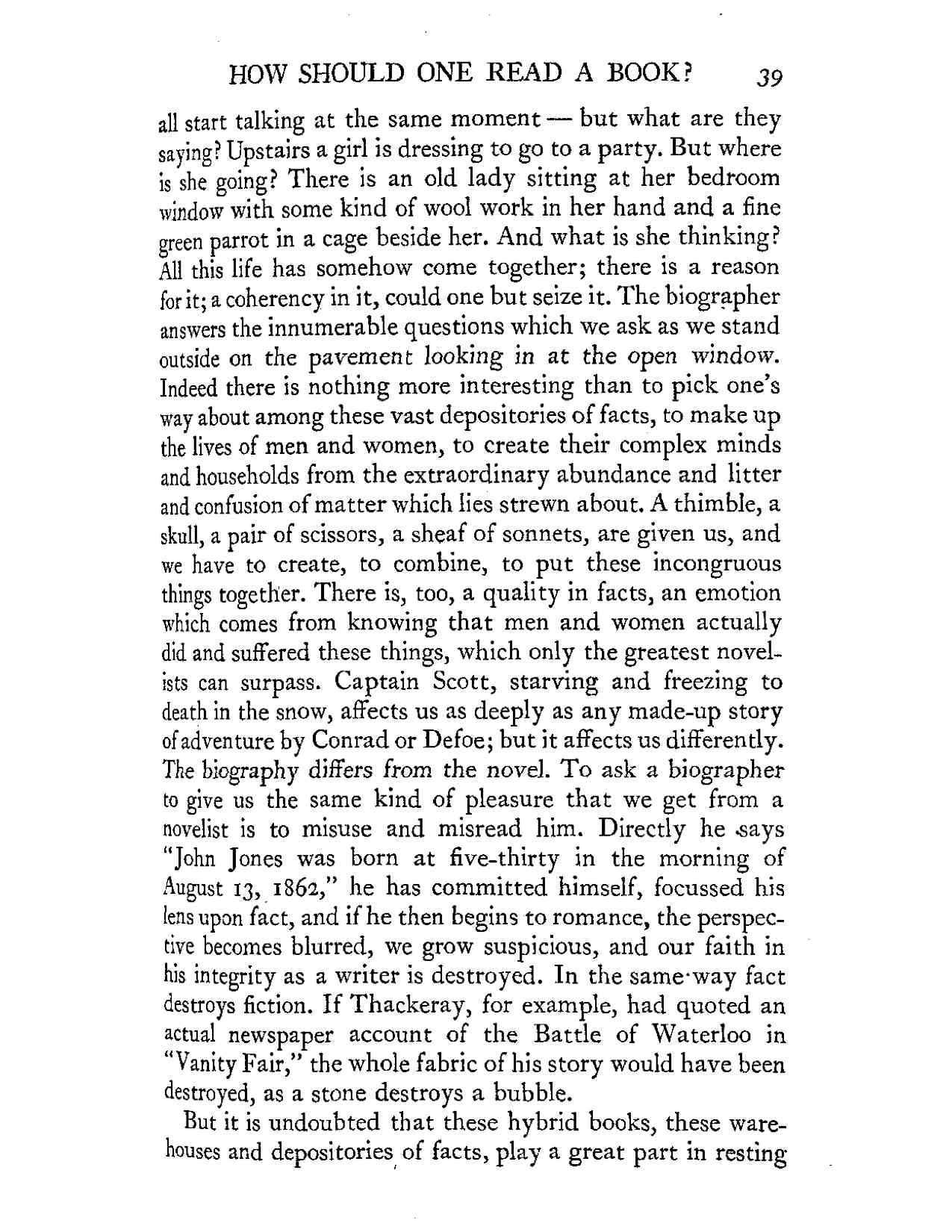
all start talking at the same moment—but what are they
saying? Upstairs a girl is dressing to go to a party. But where
is she going? There is an old lady sitting at her bedroom
window with some kind of wool work in her hand and a fine
green parrot in a cage beside her. And what is she thinking?
All this life has somehow come together; there is a reason
for it; a coherency in it, could one but seize it. The biographer
answers the innumerable questions which we ask as we stand
outside on the pavement looking in at the open window.
Indeed there is nothing more interesting than to pick one’s
way about among these vast depositories of facts, to make up
the lives of men and women, to create their complex minds
and households from the extraordinary abundance and litter
and confusion of matter which lies strewn about. A thimble, a
skull, a pair of scissors, a sheaf of sonnets, are given us, and
we have to create, to combine, to put these incongruous
things together. There is, too, a quality in facts, an emotion
which comes from knowing that men and women actually
did and suffered these things, which only the greatest novel-
ists can surpass. Captain Scott, starving and freezing to
death in the snow, affects us as deeply as any made-up story
of adventure by Conrad or Defoe; but it affects us differently.
The biography differs from the novel. To ask a biographer
to give us the same kind of pleasure that we get from a
novelist is to misuse and misread him. Directly he says
“John Jones was born at five-thirty in the morning of
August 13, 1862,” he has committed himself, focussed his
lens upon fact, and if he then begins to romance, the perspec-
tive becomes blurred, we grow suspicious, and our faith in
his integrity as a writer is destroyed. In the same way fact
destroys fiction. If Thackeray, for example, had quoted an
actual newspaper account of the Battle of Waterloo in
“Vanity Fair,” the whole fabric of his story would have been
destroyed, as a stone destroys a bubble.
But it is undoubted that these hybrid books, these ware-
houses and depositories of facts, play a great part in resting






